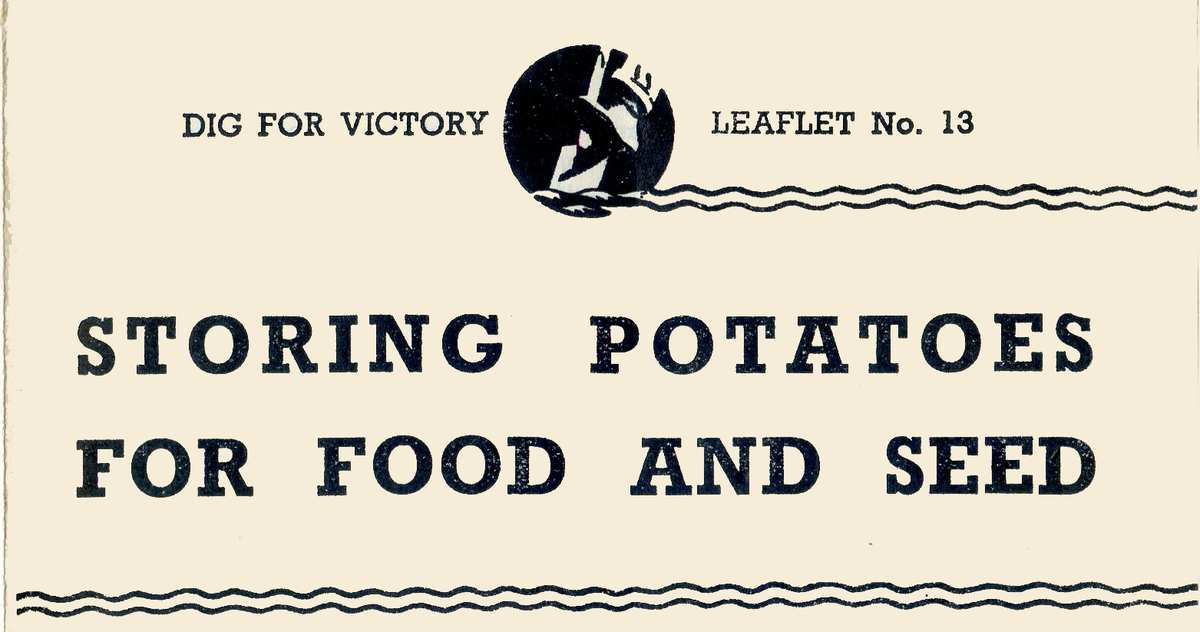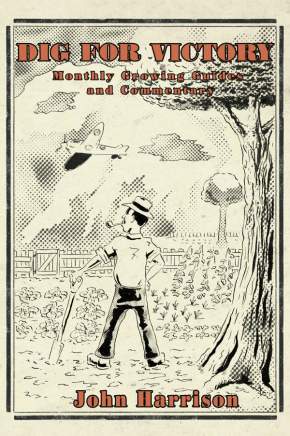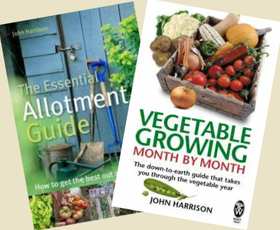 STORING POTATOES FOR FOOD AND SEED
STORING POTATOES FOR FOOD AND SEED
DIG FOR VICTORY LEAFLET No. 13 (Page 1 of 4)
All potato crops should be stored under the best of conditions. Even when every precaution is taken, the wastage of potatoes during the winter may be appreciable ; under bad conditions of storage it is very great indeed, and may even amount to the whole crop.
Small cultivators who have not had experience in the storage of potatoes should know the chief causes of wastage. They are :—
(1) sweating, heating and consequent rotting ; often due to insufficient ventilation, especially if the tubers are immature when stored ;
(2) rotting ; due to exposure to rain or to the potatoes being unduly wet when put into storage ;
(3) injury from frost ; due to insufficient protection ;
(4) decay ; owing to disease in the tubers at the time of storage.
Loss in weight by shrivelling is also caused by the sprouting of the tubers in spring. Early varieties which sprout first should be used first.
By employing the best methods of storage, it is possible to reduce these losses very materially.
Ventilation
Sweating and heating occur if freshly dug potatoes are stacked in too large heaps so that air cannot circulate between the tubers. The risk of loss from this cause is greatest in the autumn immediately after lifting, and it is therefore important that lifted potatoes should not be put in unnecessarily large heaps nor kept in an ill-ventilated shed or room. The tops should have died down before lifting to ensure that the tubers are fully mature.
Keep Tubers Dry
If potatoes are lifted in wet weather, or are exposed to rain whilst being stored or during storage, rotting will probably occur. It is therefore necessary to see that potatoes are stored dry and kept dry.
If potatoes are lifted when the ground is wet and sticky, washing them off in a bucket of water as they are lifted will shift the bulk of the soil and hopefully any blight spores adhering to the crop. They should be immediately dried off though, preferably outside in the sun or in a shed or garage if it rains.
If potatoes are kept too cold they can develop an unexpected and not pleasant sweet flavour. Storing in the warm for a few days before use should resolve this. If they actually get frozen they will rot very quickly once they warm up.
Protect from Frost
Potatoes are easily damaged by even a few degrees of frost, and if they are frozen they become unfit for human food. Every precaution must therefore be taken to protect them from frost.


